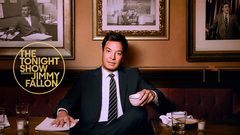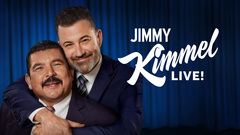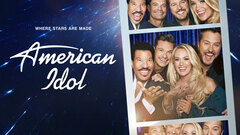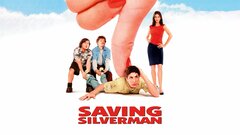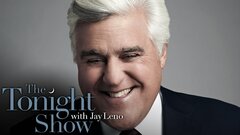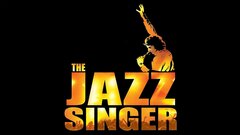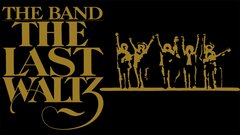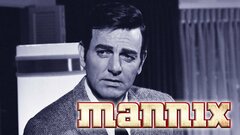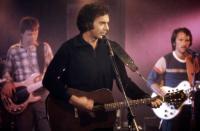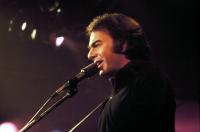An immensely talented singer-songwriter, Neil Diamond first penned hits like "I'm a Believer" for The Monkees as a Brill Building songwriter before scoring big with his own self-penned hits like "Solitary Man," "Cherry, Cherry," "Kentucky Woman," "Sweet Caroline," "Holly Holy" and "I Am I Said."
A 1970s musical phenomenon, he hit No. 1 on the Billboard charts three times with "Cracklin' Rosie," "Song Sung Blue" and his duet with Barbra Streisand, "You Don't Bring Me Flowers." On the Hollywood front, he won a Grammy for writing the soundtrack for "Jonathan Livingston Seagull" (1973), and starred in "The Jazz Singer" (1980), whose soundtrack spawned the massive pop hits "Love on the Rocks," "Hello Again" and "America." Despite his unquestionable chops for writing enduringly popular, catchy songs, Diamond was often perceived as a little cheesy throughout the years. Time ultimately validated him, however, when acts like UB40 covered his "Red Red Wine," and director Quentin Tarantino scored a pivotal "Pulp Fiction" (1994) scene to Urge Overkill's cover of his "Girl, You'll Be a Woman Soon."
Lovingly parodied by Will Ferrell on "Saturday Night Live' (NBC, 1975- ) and in "Saving Silverman" (2001), Diamond was inducted into the Rock and Roll Hall of Fame in 2010 and the next year won a Kennedy Center Honor.
Born Jan. 24, 1941 in Brooklyn, NY, Neil Leslie Diamond was the son of Jewish parents descended from Russian and Polish immigrants. He attended New York University on a fencing scholarship and became a member of the 1960 NCAA men's championship team, while at the same time intending to study medicine.
During his senior year, however, he landed a job writing songs for a music publishing company for $50 a week. After recording two unsuccessful singles with a high school friend, Diamond signed with Columbia Records in 1962 as a solo performer. Although critics were impressed with his debut singles "At Night" and "Clown Town," they made no impact on the charts.
Dropped from the label, he returned to his songwriting job in the famed Brill Building. His first hit came in 1965 when he wrote "Sunday and Me" for Jay and the Americans, but truly launched his career by penning a set of hits for The Monkees: "I'm a Believer," "A Little Bit Me, A Little Bit You," "Look Out (Here Comes Tomorrow)" and "Love to Love."
The success of his songwriting efforts, especially "I'm a Believer," helped him land another record deal. On Bang Records, he notched his first hit as a singer-songwriter with "Solitary Man," and followed up with additional smashes including "Cherry, Cherry," "Kentucky Woman" and "Thank the Lord for the Night Time." Wanting out of his contract, Diamond was forced to embark on a series of lawsuits, which he eventually won, eventually securing ownership of these recordings in 1977.
In 1970, Diamond signed with MCA Records and began writing and performing more introspective music, including "Sweet Caroline," "Holly Holy" and "I Am I Said," as well as the No. 1 smashes "Cracklin' Rosie" and "Song Sung Blue." On an undeniable roll, he played 10 sold-out concerts at Los Angeles's Greek Theatre, which was recorded and released as the live double album Hot August Night, which became one of Diamond's most acclaimed and profitable recordings.
He left MCA to return to Columbia Records with his 1973 soundtrack to the film "Jonathan Livingston Seagull." The film itself was such a critical disaster that both Diamond and the book's author sued the producer, but Diamond's soundtrack won a Golden Globe and Grammy.
After composing the music, he recorded his own version of "You Don't Bring Me Flowers" and coincidentally Barbra Streisand had recorded her own version of the song. A DJ spliced together an impromptu mash-up of the two versions, and the resulting duet hit No. 1 in 1978.
The following year he scored another success with "Forever in Blue Jeans" and soon began preparations for his first major acting role in the ill-fated remake of the Al Jolson film, "The Jazz Singer" (1980), opposite Laurence Olivier and Lucie Arnaz. Despite doing a respectable job, considering he had no real acting experience, Diamond incurred the wrath of critics who lambasted the film.
Time was also not kind to the movie, which featured scenes of Diamond in blackface, and an overly maudlin performance from the screen's greatest actor, Olivier, that was cringe-worthy. Nominated for a Golden Globe, he won the first-ever Worst Actor Razzie Award. The soundtrack, however, was a massive hit, spinning off three Top Ten pop singles: the two ballads "Love on the Rocks" and "Hello Again" and - most impressively - the uplifting ode to immigrants, "America."
Continuing to work in film, less directly, Diamond recorded "Heartlight," which went Top Ten with a thinly veiled ode to the title character of "E.T. The Extra Terrestrial" (1982).
Although his chart dominance would begin to fade, Diamond retained a powerful hold on the public's imagination as a rhinestone-beaded guilty pleasure, and his concert tours continued to be massively successful. In 1988, his "America" was used as the theme song for Michael Dukakis' presidential campaign, and the reggae outfit UB40 scored that same year with a cover of Diamond's "Red Red Wine."
Releasing cover and holiday albums, Diamond continued to make music, but saw the popularity of many of his compositions enduring to an unprecedented extent. "Sweet Caroline" became a sing-a-long staple at sporting events, Urge Overkill covered Diamond's "Girl, You'll Be a Woman Soon" for a pivotal scene in Quentin Tarantino's "Pulp Fiction" (1994), and Smash Mouth's jubilant cover of "I'm a Believer" became the unofficial theme song of the "Shrek" (2001, 2004, 2007, 2010) film series.
Along these lines, many of Diamonds songs, including such hits as "Shilo," "Play Me," "Longfellow Serenade," "Desiree," "September Morn" and "Forever in Blue Jeans" remained popular and were used in advertisements, film scores and greatest hits packages. Simultaneously mocked and beloved as a pop cultural figure, Diamond made an extended cameo in the Jack Black comedy "Saving Silverman" (2001) and saw Will Ferrell imitate him repeatedly and affectionately on "Saturday Night Live" (NBC, 1975- ).
He served as a mentor on "American Idol" (Fox, 2002-16), was inducted into the Rock and Roll Hall of Fame in 2010, and the following year won a Kennedy Center Honor. Proving that he kept up with the times, that same year he announced his engagement via Twitter.
By Jonathan Riggs


















